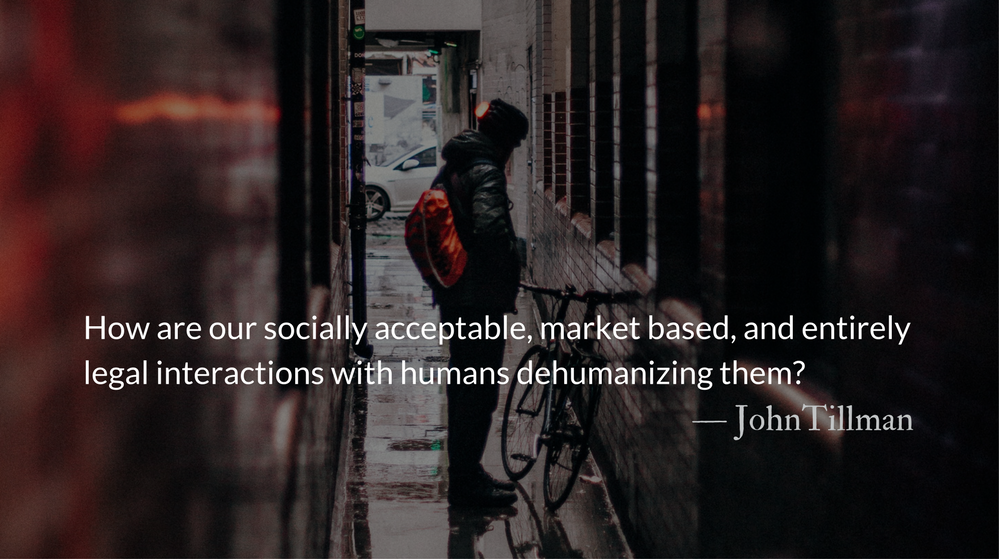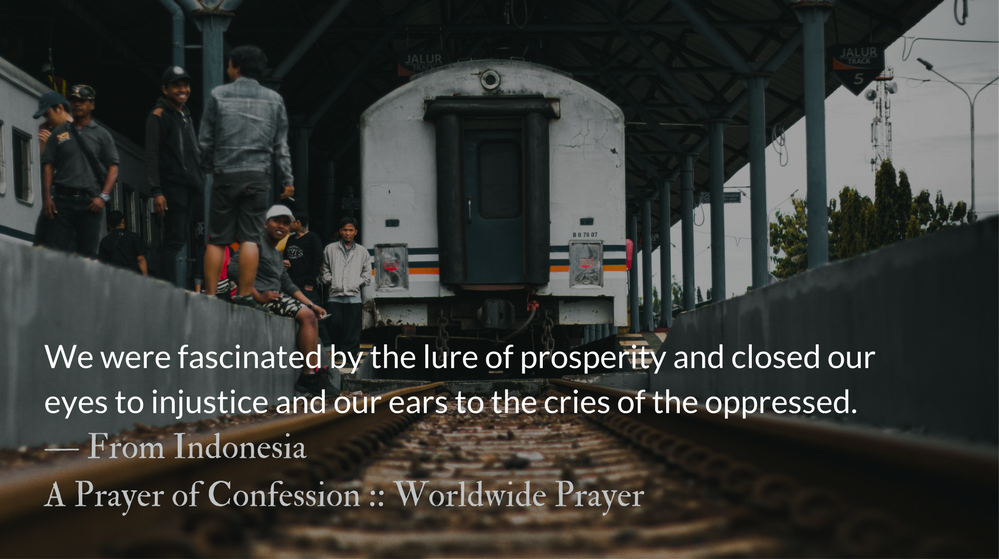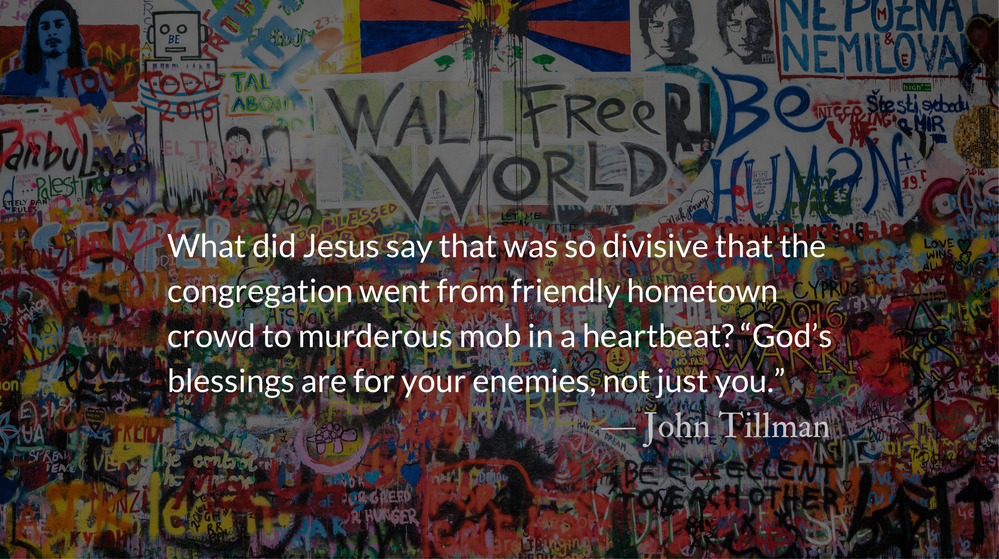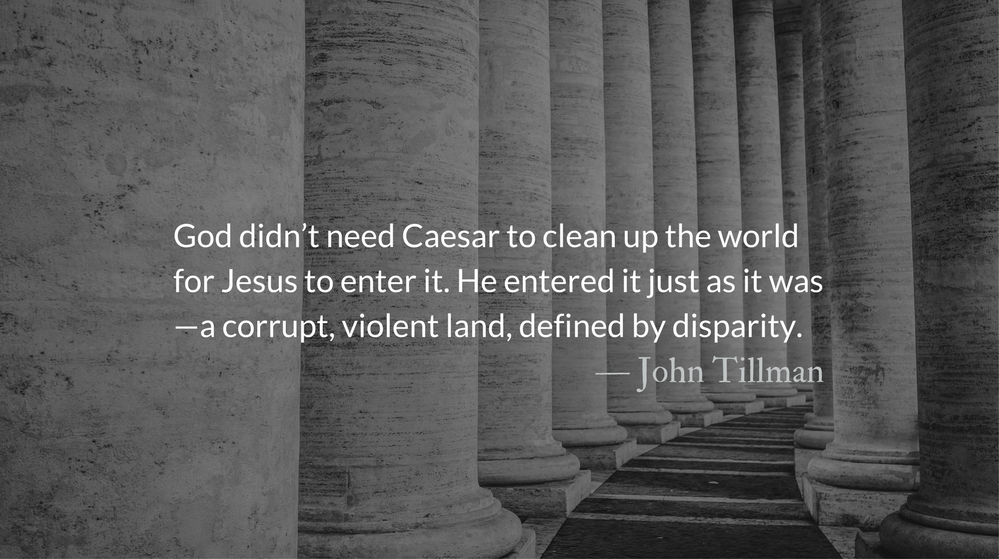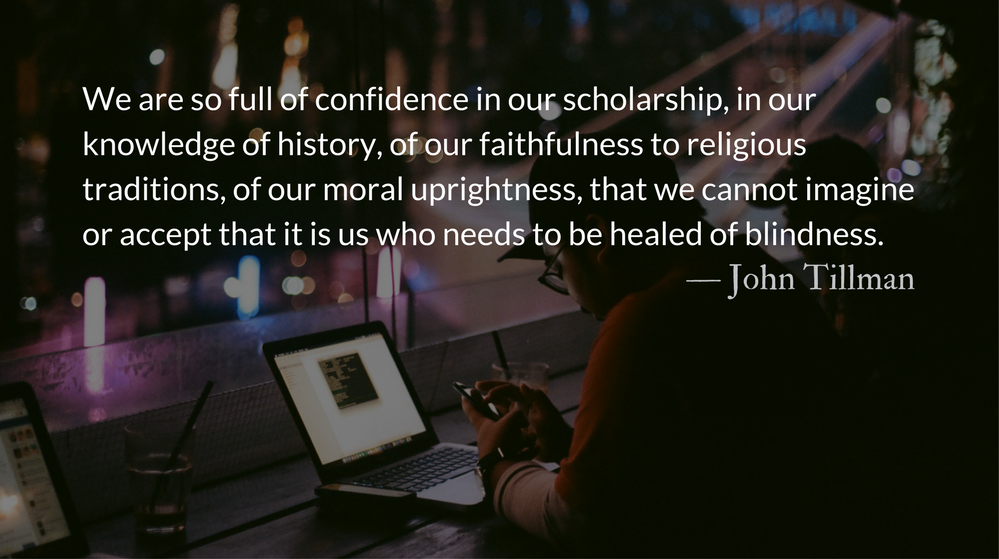Scripture: Nehemiah 5.9, 13
So I continued, “What you are doing is not right. Shouldn’t you walk in the fear of our God to avoid the reproach of our Gentile enemies?…I also shook out the folds of my robe and said, “In this way may God shake out of their house and possessions anyone who does not keep this promise. So may such a person be shaken out and emptied!”
Reflection: Taking Advantage of the Desperate
By John Tillman
There is a reason economically disadvantaged neighborhoods often contain payday lenders and abortion clinics, but few doctor’s offices or grocery stores—monetization of desperation.
From a business perspective, the noblemen confronted by Nehemiah were simply following the market. Payday lenders would describe it as filling a “financial service void.” As lien-holders, the noblemen could have denied responsibility. As long as customers make loan payments, who cares how they get the money? If they can’t pay, it’s their problem.
But as fellow humans, as children of God, Nehemiah challenged the rich to see their actions as directly causing the continuing, systematic enslavement of their brothers and sisters. Systemic poverty was literally tearing families apart.
The economic system these families were trapped in was socially acceptable, market based, and entirely legal. What Nehemiah challenged the noblemen to do was economically nonsensical, entirely compassionate, and was an investment in the community.
It would be easy for us to dismiss this scripture in Nehemiah as being about the evils of big business, or payday lenders, or “Capitalism.” We are much more comfortable pointing fingers at faceless entities or ideologies. But if we reflect long enough, there are many ways this comes home to us. The undocumented workers who make our groceries cheaper. The millions of workers who must work two jobs—being separated from family—to make one income.
How are our socially acceptable, market based, and entirely legal interactions with humans dehumanizing them? How can we compassionately invest in our communities, relieving some of the financial pressure that those around us experience and short-circuiting systems rigged to extract as much money as possible from the pain of marginalized brothers and sisters?
As the church, we can be difference-makers, rebuilding the broken in our society. To do this, we must engage in economically nonsensical, entirely compassionate, community investment. Let us pray for churches, political leaders, and ourselves to innovate in this space—to create ways to lighten the burden of the oppressed and to set free the captives.
Today, on Martin Luther King day in the United States, we acknowledge that the systems that create economic disparity affect minorities disproportionately. Economic disadvantagement isn’t racist, but minorities are statistically more affected by it. The church must continue to move compassionately to the aid of all disadvantaged people regardless of race.
The Refrain for the Morning Lessons
Purge me from my sin, and I shall be pure; wash me, and I shall be clean indeed. — Psalm 51.2
– From The Divine Hours: Prayers for Autumn and Wintertime by Phyllis Tickle.
Full prayer available online and in print.
Today’s Readings
Nehemiah 5 (Listen – 3:29)
Acts 15 (Listen – 5:43)

